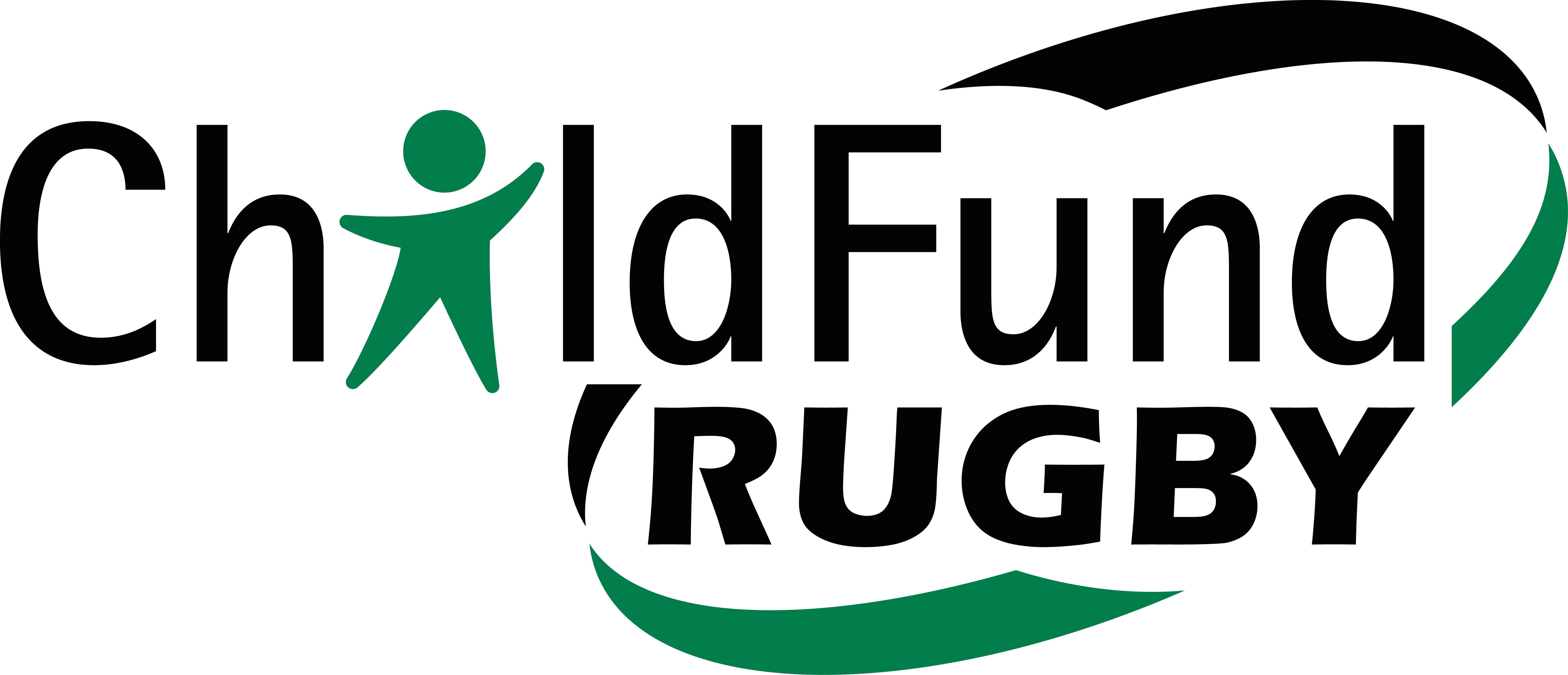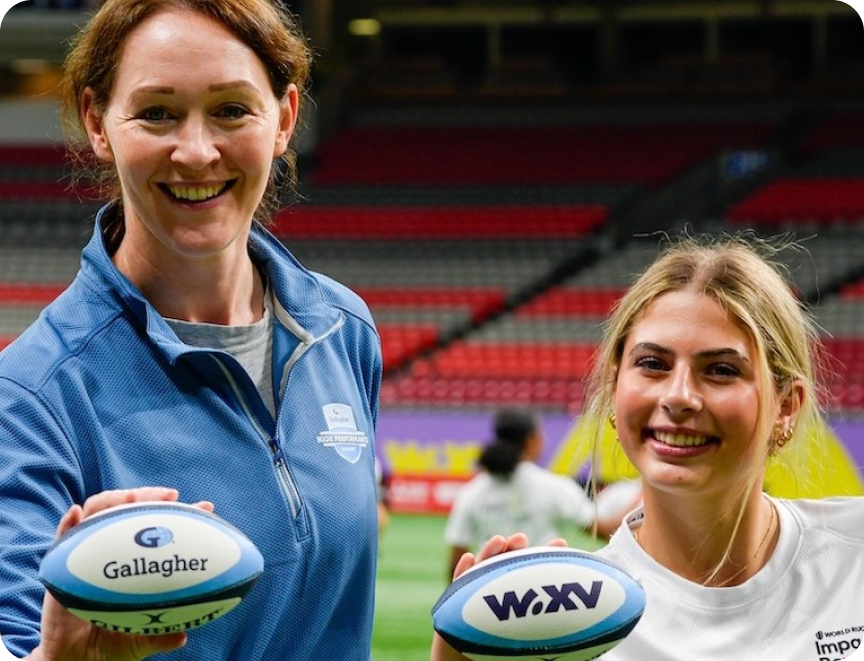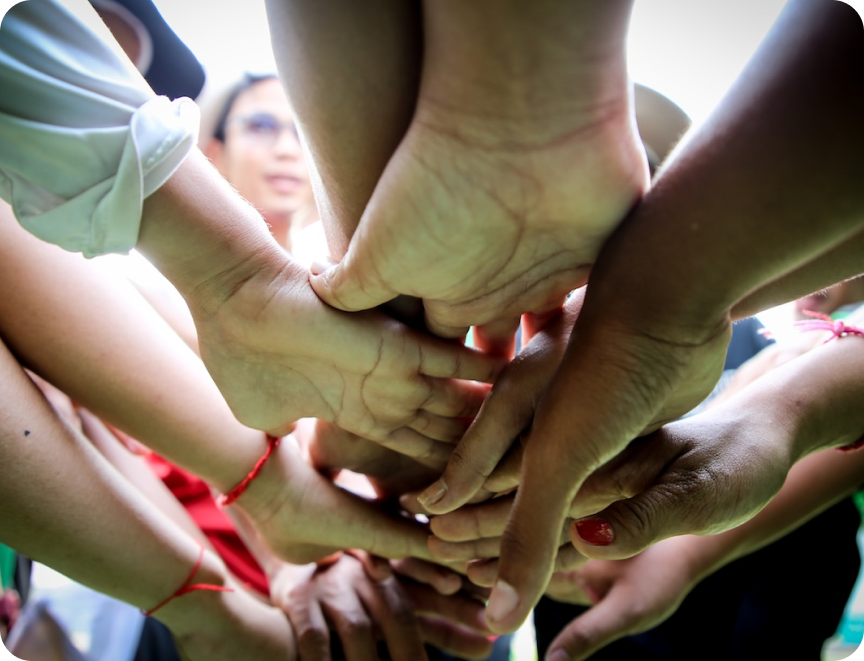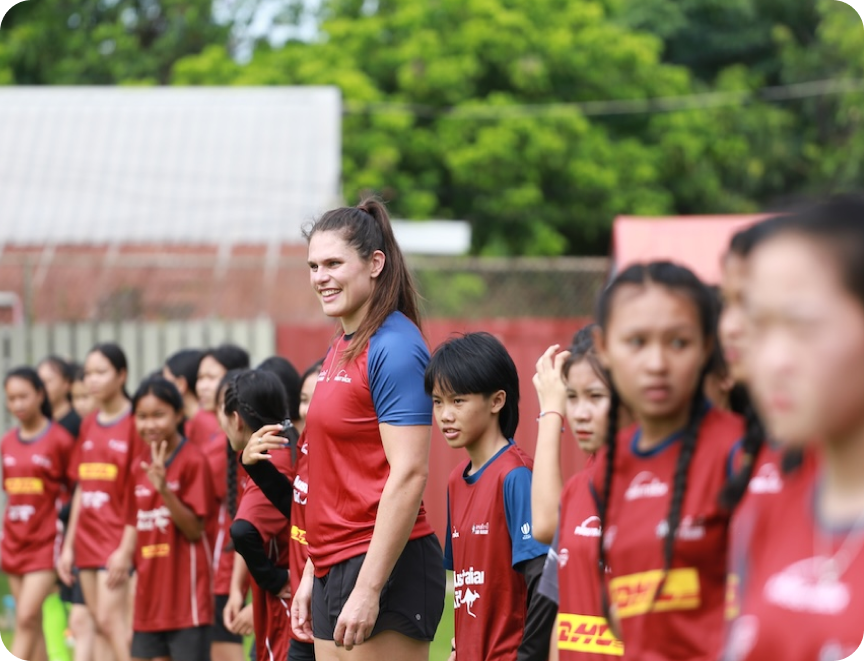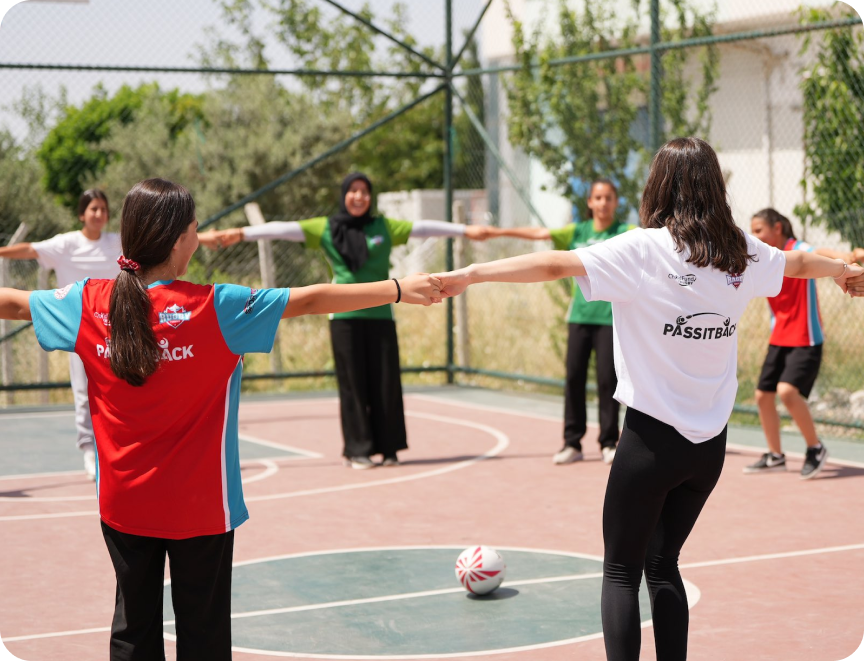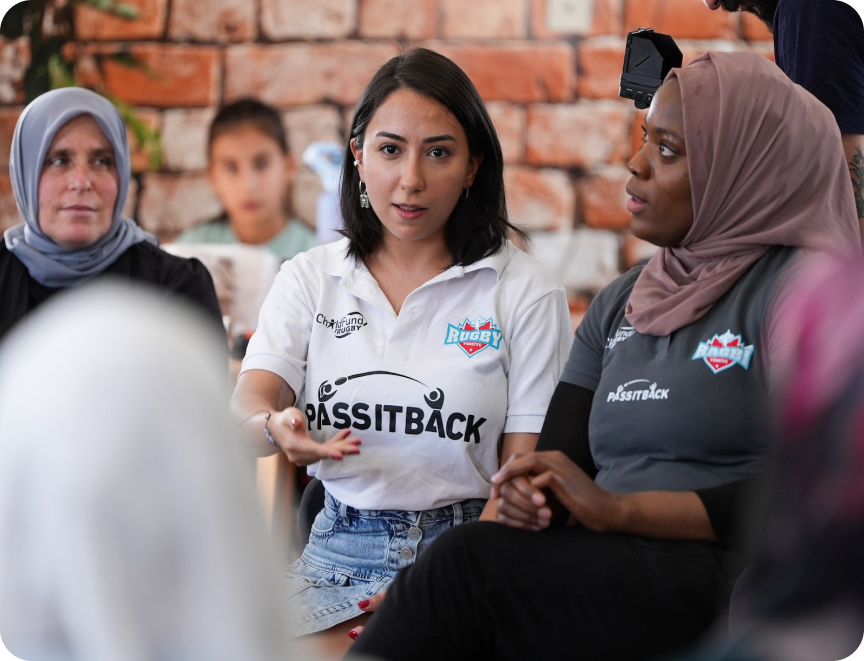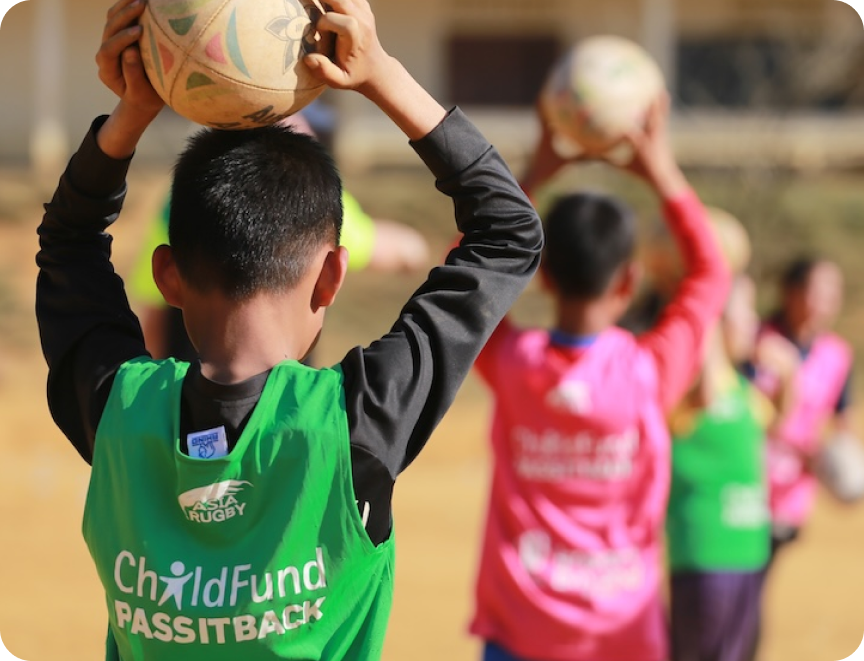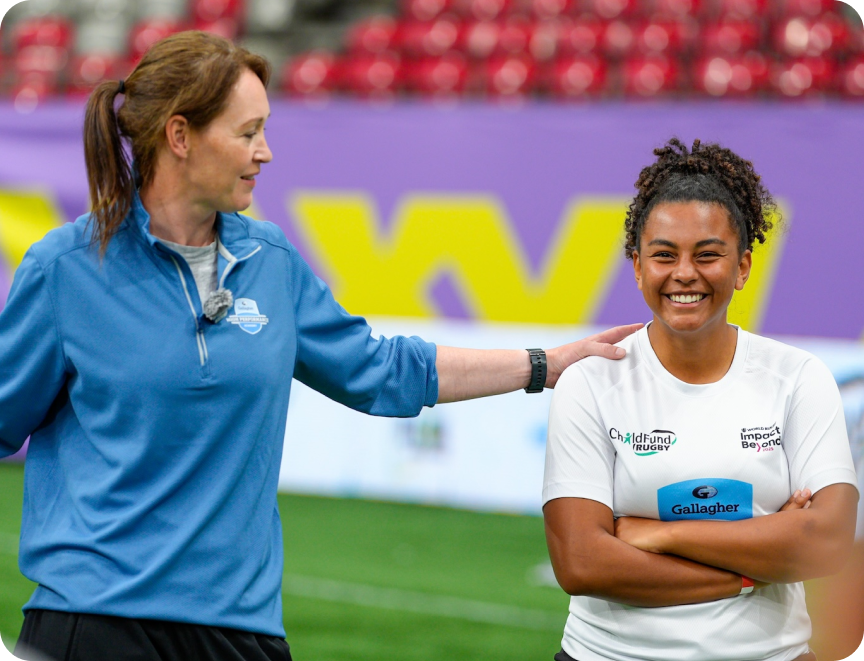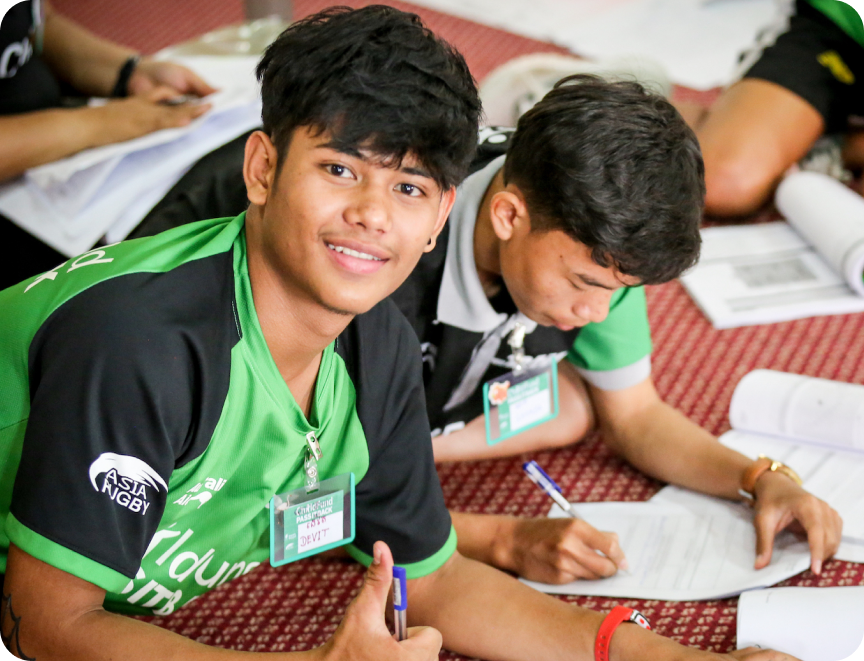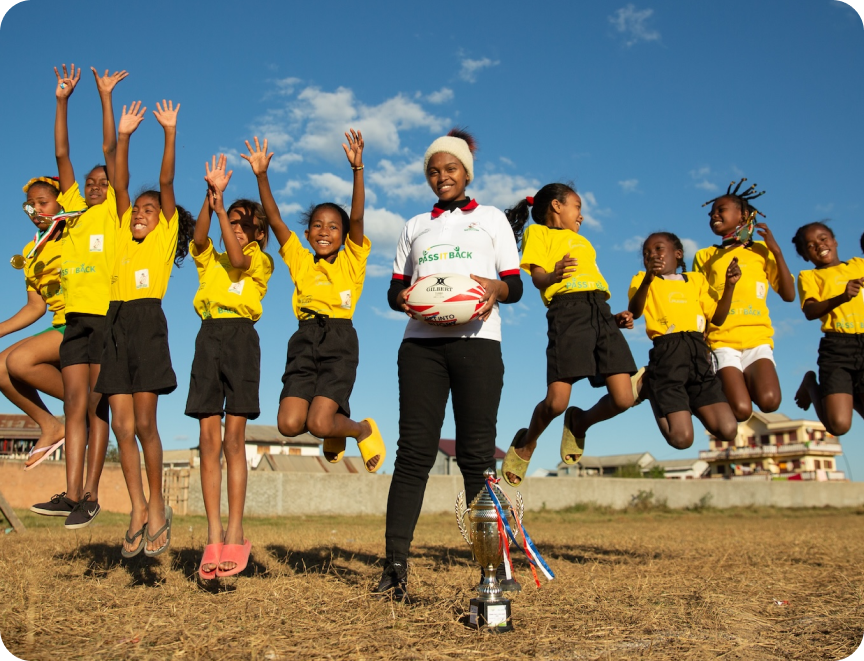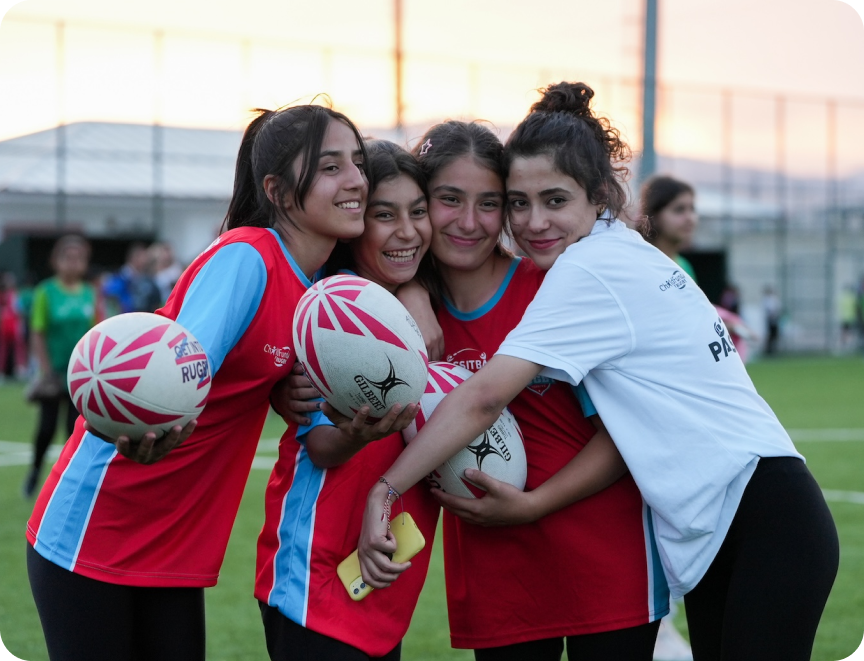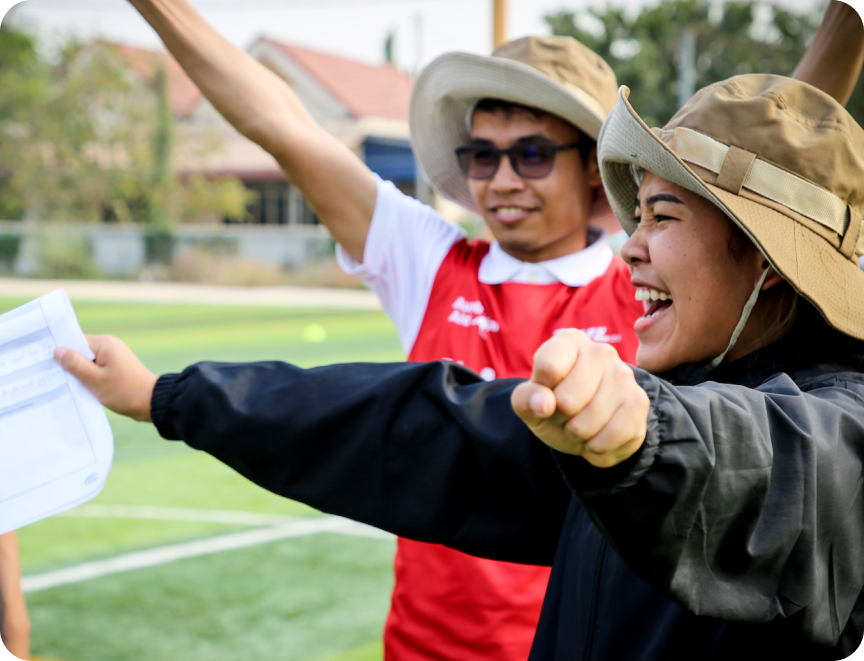An early member of the team behind Pass It Back reflects on a decade of movement, growth, and global connection.
In 2025, ChildFund Rugby marks a major milestone: 10 years of Pass It Back – the initiative that laid the foundation for what would become ChildFund Rugby today.
Behind the journey is a network of Coaches, players, partners, and champions from across the rugby and development worlds – and among the very first to help bring it to life was James Owens, an early team member who stepped into the unknown with belief, energy, and a deep respect for community leadership.
Motivated by sport as a tool for change
James joined ChildFund Rugby in 2015 when Pass It Back was just getting started. Drawn to the concept of using rugby as a vehicle for youth development, he signed on to support the very first coach training involving young people from Laos and Vietnam.
Those early experiences revealed just how impactful the right environment could be. For many young people, joining a team or stepping into a coaching role was the first time they had been actively encouraged to lead. What stood out for James was how quickly young participants embraced the values of the initiative, not just on the pitch but in their everyday lives.
One story that has stayed with him is that of Aeng Kang from Xieng Khouang, Laos. Initially hesitant and soft-spoken, Aeng eventually grew into a confident Coach, and later a leader overseeing other coaches in her province.
“Stories like Aeng and many other young leaders following in her footsteps showed me the ripple effect that initiatives like Pass It Back can have, not just on individuals but on entire communities.” James shared.
Overcoming the unknown
Introducing a new sport was never going to be easy. There was plenty of scepticism in the beginning – about rugby itself, and about the relevance of sport in addressing community issues.
What helped shift perceptions was the approach: building from the ground up, working closely with community leaders, and training young Coaches to deliver both rugby and life skills learning. This grassroots strategy wasn’t just effective; it has become foundational to Pass It Back’s success.
James saw firsthand how trust was built, not through one-off sessions, but through long-term collaboration, a consistent presence, and listening carefully to what communities valued. That, he says, was the most important early lesson: designing environments that enable young people to lead means working with, not for, communities.
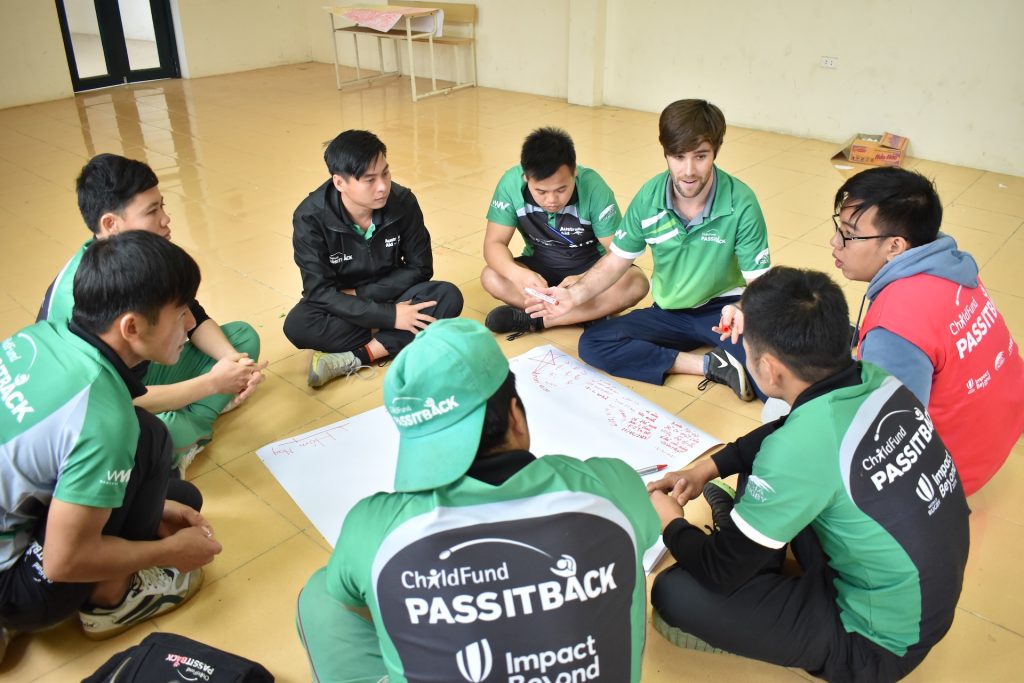
James and Vietnam Pass It Back Coaches at a Coach Training in 2018.
A turning point on two wheels
In 2019, James took his support for Pass It Back to a new level, by cycling 20,093 kilometres from London to Tokyo as part of Race to Rugby World Cup. The journey took him across 27 countries and raised over €130,000!
The experience was about more than fundraising. It was a way to highlight the work of Pass It Back Coaches and leaders, and to connect the rugby world with the values driving the initiative. Along the way, James and his cycling partner, Ron Rutland, met players, teams and supporters who were eager to learn about the work being done through rugby off the field.
The physical and emotional demands of the journey mirrored the resilience James had seen among Pass It Back coaches – young people who had overcome barriers, challenged stereotypes, and shown up for their communities again and again. The lessons of rugby – supporting your team, pushing through tough moments, and staying focused on the bigger goal – were embedded in every kilometre.
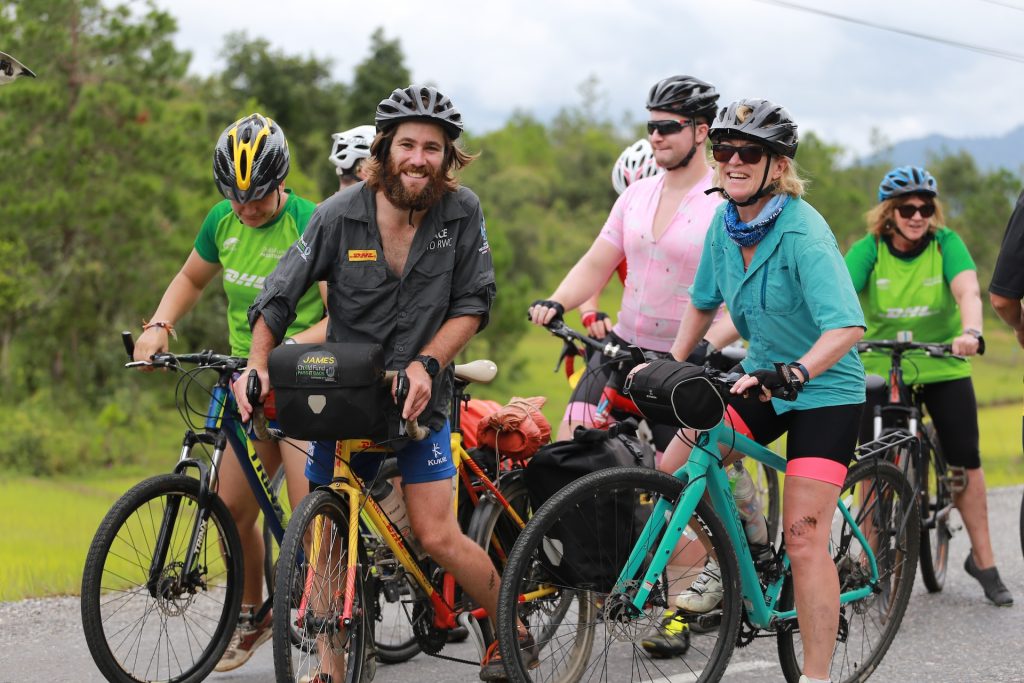
James, joined by his mother and other supporters, during the Lao leg of the Race to Rugby World Cup 2019.
Continuing the movement
James continues working in the rugby for development space as the Programme Development Manager at Rugby for Good in Hong Kong. His work involves designing inclusive, play-based education programs that deliver social and emotional learning outcomes for young people, much of it shaped by his foundational experiences with Pass It Back.
He continues to collaborate with ChildFund Rugby, particularly around monitoring and evaluation. Recently, this has included working together to strengthen Rugby for Good’s measurement tools and impact frameworks, ensuring that social inclusion and learning outcomes remain central to design and delivery.
The principles that defined Pass It Back from the beginning – community involvement, cultural responsiveness, and evidence-based design – continue to influence how James approaches his work today.
What comes next: sustainable change, led locally
What began as a pilot initiative in a few rural districts in Laos is now influencing rugby development efforts globally, and is still guided by the same values.
James sees the next chapter of the initiative as an opportunity to deepen its reach, support new leaders, and adapt to new contexts without losing what made it work in the first place.
